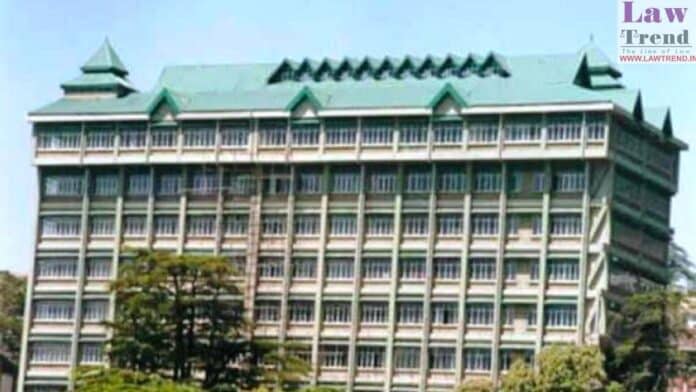The Himachal Pradesh High Court has strongly criticised the National Highways Authority of India (NHAI) for the prolonged delay and poor maintenance of the Parwanoo–Chambaghat–Kaithalighat–Dhalli four-lane project, warning that the suspension of toll collection at Sanwara toll plaza will continue unless the authority fixes the issues within ten days.
A division bench of Chief Justice G.S. Sandhawalia and Justice Jiya Lal Bharadwaj noted that although the NHAI has claimed “substantial completion” of the project, it remains delayed by more than six years. The court observed that several stretches of the highway—particularly near Kandaghat, Datyar, and Chakki—were still in a “pitiable condition”, causing daily hardship to commuters.
In its order, released on Thursday, the bench emphasised that the maintenance of roadside drains and prompt removal of debris from hill slopes were vital to prevent further road damage. It said such neglect not only undermines public safety but also reflects a lack of accountability in execution.
The court also appreciated the “proactive assistance” of Amicus Curiae Ganesh Barowalia, noting that his inputs had been valuable in ensuring better monitoring of highway construction and maintenance across the state.
Earlier, on September 18, 2025, the court had ordered suspension of toll collection at the Sanwara toll plaza due to the poor road conditions and absence of adequate commuter facilities on the busy Parwanoo–Shimla highway. Frequent landslides, traffic jams, and road closures had raised serious concerns about the quality of construction and safety management.
The NHAI was directed to file a status report by October 30, providing details of contractors involved and measures taken to address the problems. The court had also sought a safety and stability report on the bridge near Salograh, specifically asking for an assessment of the piers’ condition and repair costs.
After receiving the latest compliance report on November 3, the bench scheduled the next hearing for November 11, cautioning that continued non-compliance would invite further judicial intervention.




